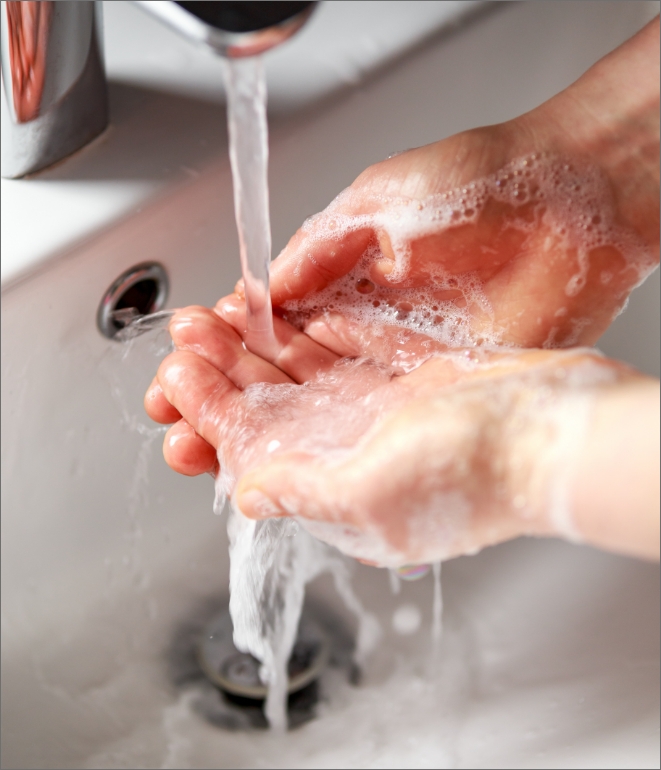How Often Should a Water Heater Be Flushed in Huntertown, IN?

Your hot water heater is one of the hardest-working appliances in your home—but it’s also one of the most overlooked when it comes to maintenance. At T&T Plumbing & Heating, Inc., we often hear from Huntertown homeowners wondering how to get the most life out of their water heaters. One key piece of advice we give every time: flush your water heater regularly.
Flushing your water heater is an essential part of routine maintenance that keeps the system running efficiently, prevents costly damage, and extends its lifespan. But how often should a water heater be flushed in Huntertown, IN? What happens if you don’t? And how can you tell if it’s time? Read on to learn more!
How Often Should You Flush a Water Heater in Huntertown, IN?
We recommend flushing your tank water heater at least once per year, but that’s a general rule. Several factors unique to your home can influence how often you should schedule a flush:
Water Hardness
Huntertown residents deal with hard water, which means your tank collects mineral buildup and sediment more quickly. If your home doesn’t have a water softener, flushing every 6 to 9 months may be more appropriate.
Water Heater Age
Older units tend to accumulate sediment faster and may be less efficient. If your water heater is more than 8 years old, consider flushing it twice a year to keep it running reliably.
Household Size
The more hot water your family uses, the more quickly sediment builds up. A family of five using hot water daily for showers, laundry, and dishes will put more strain on the system than a single resident.
Manufacturer’s Recommendations
Always check your owner’s manual. Manufacturers often provide guidance tailored to the make and model of your unit.
What T&T Plumbing & Heating, Inc. Does When We Flush Your Water Heater
When you schedule water heater maintenance in Huntertown, IN, with a professional water heater flush from T&T Plumbing & Heating, Inc., you’re getting a comprehensive, careful service that restores your system’s performance, prolongs its life, and increases your energy savings.
Here’s what our team does during a standard water heater flush:
1. Full System Inspection
Before we begin the flush, we inspect the entire water heater for signs of wear, leaks, corrosion, or other red flags. This includes checking the temperature and pressure relief valve, drain valve, and water lines to ensure everything is functioning safely and properly.
2. Power and Water Shut-Off
For safety, we shut off the water supply to the heater and either disconnect the power (for electric units) or turn off the gas supply (for gas units). This step prevents any risk of burns or flooding during the flushing process.
3. Tank Draining
We connect a high-quality hose to your water heater’s drain valve and safely direct the flow to a nearby floor drain or appropriate location. Then, we carefully drain the tank, removing the hot water and sediment that’s built up inside.
4. Sediment Removal and Deep Flushing
Once the tank is mostly empty, we turn on the cold water supply in short bursts to stir up and flush out remaining sediment. We may use additional techniques or equipment if the buildup is particularly stubborn.
5. Tank Refill and System Restart
After all sediment is cleared, we close the drain valve, disconnect the hose, and refill the tank with clean water. Once full, we restore power or relight the pilot and ensure the system returns to normal operation.
6. Final Testing and Safety Check
To finish the service, we test the system to confirm everything is working correctly. We check the water temperature, inspect for leaks, and make sure your heater is heating efficiently. You’ll also get recommendations for when your next flush should be scheduled.
How Do I Know If My Water Heater Needs to Be Flushed?
Even if you’re not a plumbing expert, your water heater will usually give you some warning signs when it’s time to flush. Look out for these red flags:
Unusual Sounds
Popping or rumbling sounds are often the result of sediment bouncing around inside the water heater tank. These noises usually mean the buildup is significant enough to warrant immediate attention.
Reduced Hot Water Output
If your hot water runs out faster than it used to, it could be due to sediment occupying valuable tank space, leaving less room for actual water.
Fluctuating Water Temperature
Inconsistent or lukewarm water, especially when the thermostat is set correctly, may indicate that sediment is interfering with heating performance.
Cloudy or Rusty Water
Discoloration in your hot water supply may point to rust or sediment in the water heater tank. If the water is cloudy or has an unusual smell, call T&T Plumbing & Heating, Inc. for a professional flush and inspection.
What Happens If You Never Flush Your Water Heater?
Are you wondering what happens if you never flush your water heater? The long-term consequences of skipping regular maintenance can be serious—and expensive.
- Reduced Energy Efficiency and Higher Energy Bills: As sediment accumulates on the heat exchanger, your water heater will take longer to heat the same amount of water. You may notice lukewarm showers and higher utility bills, especially in winter.
- Damaged Tank and Components: Sediment and mineral deposits can corrode the interior of the tank and damage the heating elements. This wear and tear can lead to tank leaks and full system failure, requiring a costly water heater replacement.
- Overheating and Pressure Build-Up: If sediment covers the bottom of the tank, it can trap heat, causing hot spots. These hot spots not only strain the metal but also increase internal pressure. If the pressure relief valve fails, it could result in dangerous conditions or even an explosion in rare cases.
- Voided Warranty: Some manufacturers require documented water heater maintenance—including flushing—to honor water heater installation warranties. Neglecting this service could leave you footing the bill for a replacement.
Can You Flush a Water Heater Yourself?
Flushing a water heater can be a DIY project if you’re comfortable with basic plumbing. However, there are risks, especially if your unit is older or hasn’t been maintained in a while. Improperly flushing your tank can result in leaks, scalds, or damage to the pressure relief valve.
If you’re unsure or want peace of mind, trust the professionals at T&T Plumbing & Heating, Inc. Our licensed technicians can inspect your system, safely perform the flush, and check for any other signs of wear, leaks, or corrosion. You’ll also get expert guidance on how often to schedule service based on your unique situation.
Don’t Skip This Simple Step
In a place like Huntertown, Indiana, where water hardness is a real issue, flushing your water heater isn’t just “nice to do.” It’s necessary for ensuring consistent hot water, extending the life of your unit, and saving money over time.
Whether you’re dealing with an older unit or just want to establish a regular water heater maintenance routine, T&T Plumbing & Heating, Inc. is here to help. We offer water heater flushing services for both tank and tankless water heaters, customized to meet your home’s needs.
Don’t wait for cold showers or pricey water heater repairs to remind you. Schedule a water heater flush today with the team that Huntertown homeowners trust for water heater services.
